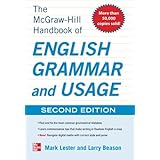canonist: Associated Words
Words described by canonist & Words describing canonist
- bolognesenoun«
- tancrednoun«
- foppishadj«
- johannesnoun«
- eminentadj«
- doctrinenoun«
- dominicannoun adj«
- theodore«
- byzantinenoun adj«
- popesnoun«
- renownedadj«
- giovanninoun«
- jesuitnoun adj«
- raymondnoun«
- celebratedverb adj«
- traditionnoun«
- ablestadj«
- cardinalnoun adj«
- medievaladj«
- williamnoun«
- italiannoun adj«
- johnnoun«
- famousadj«
- theorynoun«
- distinguishedverb adj«
- teachingnoun verb«
- centurynoun«
- henrynoun«
- spanishnoun adj«
- stephennoun«
- learnedverb adj«
- doctrinesnoun«
- influentialadj«
- writersnoun«
- expertnoun adj«
- bishopnoun«
- greatnoun adj«
- writingsnoun verb«
- englishnoun adj«
- thoughtnoun verb«
- trainedverb adj«
- alikeadj adv«
- notedverb adj«
- vannoun«
- foremostadj adv«
- literaturenoun«
- leadingnoun verb adj«
- whosenoun«
- respectedverb adj«
- sourcesnoun verb«
- brilliantadj«
- viewnoun verb«
- papaladj«
- opinionnoun«
- greatestadj«
- conceptionnoun«
- frenchnoun verb adj«
- himself«
- romannoun adj«
- tillnoun verb«
- strictadj«
- skilledadj«
- outstandingadj«
- germannoun adj«
- greeknoun adj«
- prominentadj«
- profoundadj«
- catholicnoun adj«
- contemporarynoun adj«
- accomplishedverb adj«
- laynoun verb adj«
- importantadj«
- excellentadj«
- anotheradj«
- knownverb adj«
- protestantnoun adj«
- professionalnoun adj«
- lateradj adv«
- goodnoun adj adv«
- firstnoun adj adv«
- cambridgenoun«
- rigidadj«
- onenoun adj«
- americannoun adj«
- oldnoun adj«
- bothadj«
- ancientnoun adj«
- bestnoun verb adj adv«
- youngnoun adj«
Sharpen your Skills with the Masters
Collocation words for "canonist" are words related to "canonist" by occurring either before or after "canonist" in common language usage across multiple media. The above word list can be filtered by parts of speech (i.e) nouns, verbs, describing adjectives and adverbs, or by their positive or negative vibes, frequency in usage, whether they are prefix words or suffix words for "canonist" or by the count of syllables each word has.
 The War of Art: Break Through the Blocks and Win Your Inner Creative Battles
The War of Art: Break Through the Blocks and Win Your Inner Creative Battles
 The Life-Changing Magic of Tidying Up: The Japanese Art of Decluttering and Organizing
The Life-Changing Magic of Tidying Up: The Japanese Art of Decluttering and Organizing
 Hidden Figures: The American Dream and the Untold Story of the Black Women Mathematicians Who Helped Win the Space Race
Hidden Figures: The American Dream and the Untold Story of the Black Women Mathematicians Who Helped Win the Space Race
 McGraw-Hill Handbook of English Grammar and Usage, 2nd Edition
McGraw-Hill Handbook of English Grammar and Usage, 2nd Edition